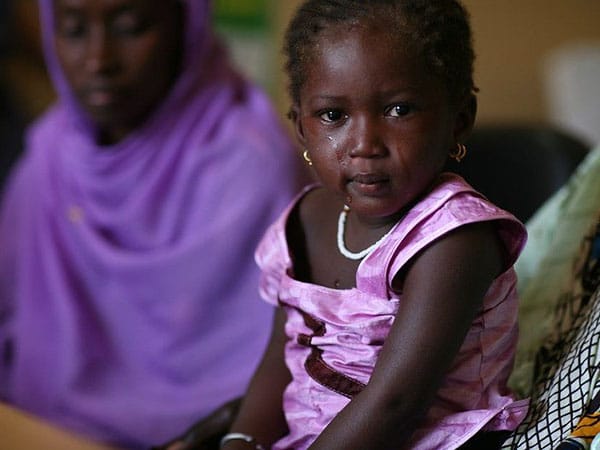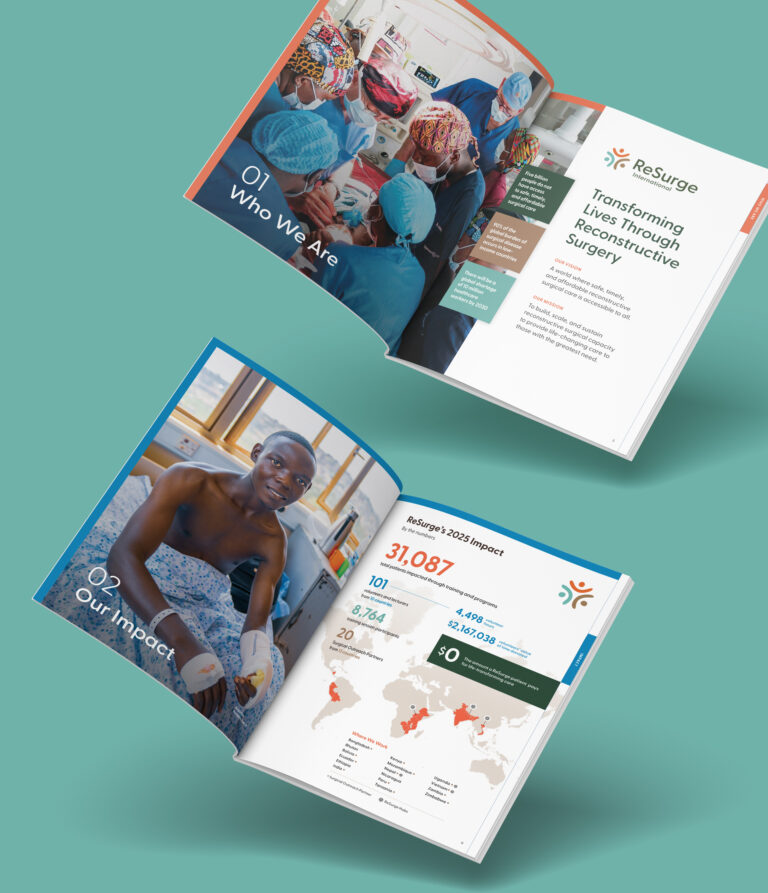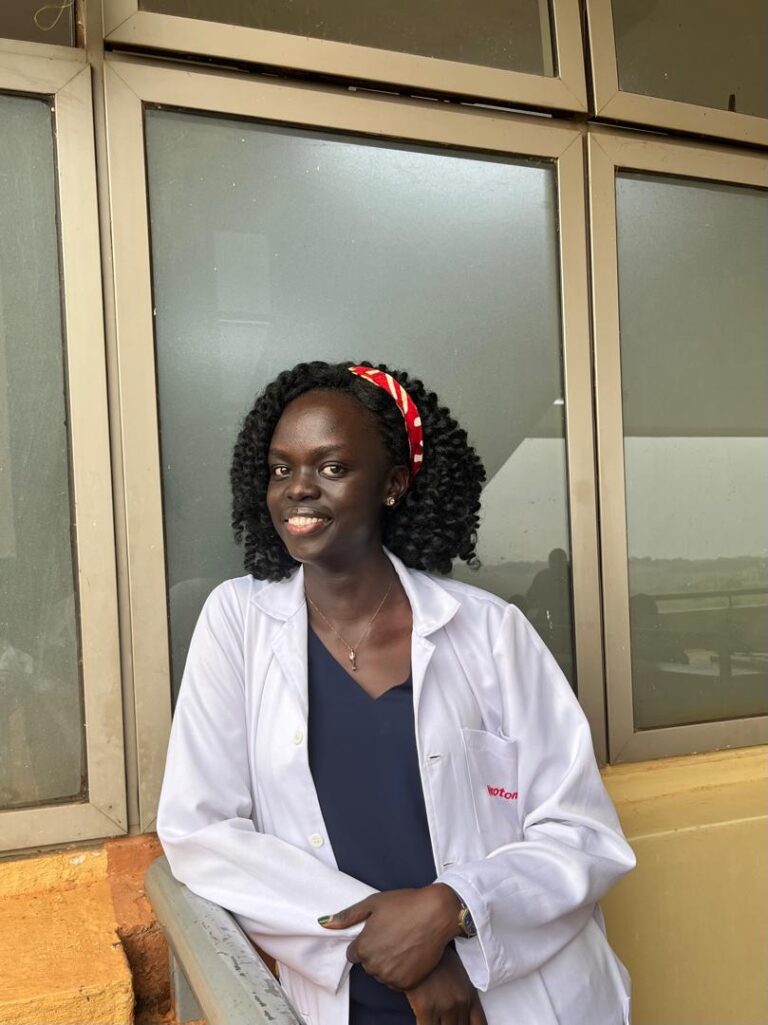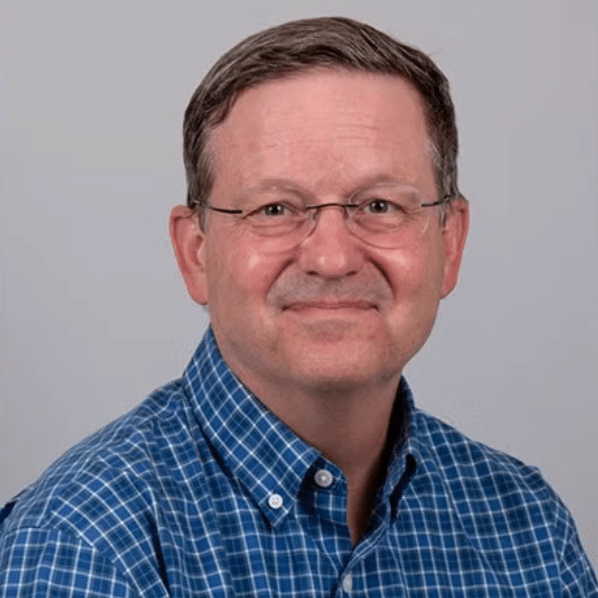ReSurge is pleased to be launching a new initiative to increase access to safe reconstructive surgical care in Eastern, Central and Southern Africa by:
- Increasing the pipeline of medical professionals to provide reconstructive plastic surgery in the region
- Providing financial support to qualified reconstructive surgeons in the region who provide care to the poor.
ReSurge is thrilled to announce that a lead gift of $700,000 from a very generous anonymous donor has been secured to fund this exciting program.
To develop and orchestrate the program, ReSurge has partnered with the College of Surgeons of East, Central, and Southern Africa (COSESCA). The COSECSA region of 14 sub-Saharan countries has a serious shortage of care, with just approximately 1.6 plastic surgeons for every 10 million people.
To address this shortage of surgeons, ReSurge has been sending visiting educators to countries in Southern Africa since 1999. Teams have provided training and education focused on specific procedures over a week-long period. While beneficial, these short-term volunteer efforts are not sufficient to establish the pipeline of trained medical professionals to meet the need. Investments in surgeons, anesthesiologists, nurses, non-physician providers, frontline health workers and support staff are needed to ensure safe surgical care delivery.
ReSurge will partner with Comprehensive Community Based Rehabilitation (CCBRT) in Tanzania and with an additional hospital to be determined within the COSECSA region to create a structured training program. The training will provide participants exposure to the full scope of reconstructive surgery and the opportunity to practice surgical skills under supervision. Given that COSECSA is a regional college of surgeons, ReSurge will be able to train surgeons from the full 14 countries in one location that ReSurge has thoroughly vetted, reducing the need to vet multiple sites across the region. Additionally, an enhanced e-training program will be incorporated in order to sustain continuing education and mentorship.
With partnerships and funding in place, ReSurge has hired a global health expert to manage and oversee the program. Natalie Meyers holds a master’s degree in global health and population from the Harvard T.H. Chan School of Public Health and a bachelor’s degree in community health from Brown University.
Since 2008, Natalie’s career has focused on public programs and policies, both domestic and international. While working for the United States Agency for International Development (USAID), she managed the allocation of over $55 million to nine African countries for Ebola preparedness, as well as setting up and helping manage the Ebola Task Force. As a founding employee and consultant of San Francisco-based Global Impact Advisors (GIA), Natalie coordinated with the Gates Foundation on an initiative enabling access to contraceptives to over 40 million women in six years, and spearheaded a program to raise money for a mobile health clinic in Ecuador.
Most recently, Natalie was the innovation strategist for the mayor’s office of San Francisco, managing the city’s public-private partnership program, Civic Bridge, which recruits private sector professionals to volunteer their time to work alongside government employees on critical city issues. She is excited to begin her next chapter of advancing global health with ReSurge.
“I cannot begin to express how thrilled and honored I am to be working with the ReSurge team,” said Natalie. “This is a dream job for me. I’m excited to build on ReSurge’s 50 years of experience, dedicated volunteer pool, and global impact to help expand our capabilities for more continuous training to build local capacity in Africa.”
The COSECSA partnership will initially be structured similar to other ReSurge visiting educator models. However, Natalie hopes to expand the ability to train through virtual technology. “Through our partnership with COSECSA my plan is to build on ReSurge’s visiting educator model and bring in some innovative ways for continued learning so that we can double or triple our trainees,” said Natalie. “I’m excited to start so that ReSurge can continue to serve even more patients through our local surgical outreach partners, even when we can’t hop on planes ourselves.”
Given the global health emergency we currently find ourselves in, the importance of building local capacity has never been more evident. The swift spread of the coronavirus pandemic has left many populations isolated with limited healthcare resources.
According to Natalie, “The unprecedented impact of COVID-19 is shaping all of our lives and the immediate future is uncertain, but it reinforces the critical importance of focusing on local capacity building.”





